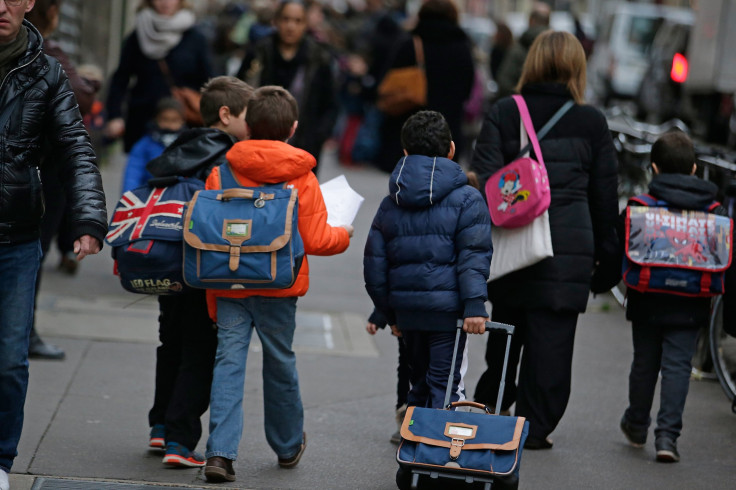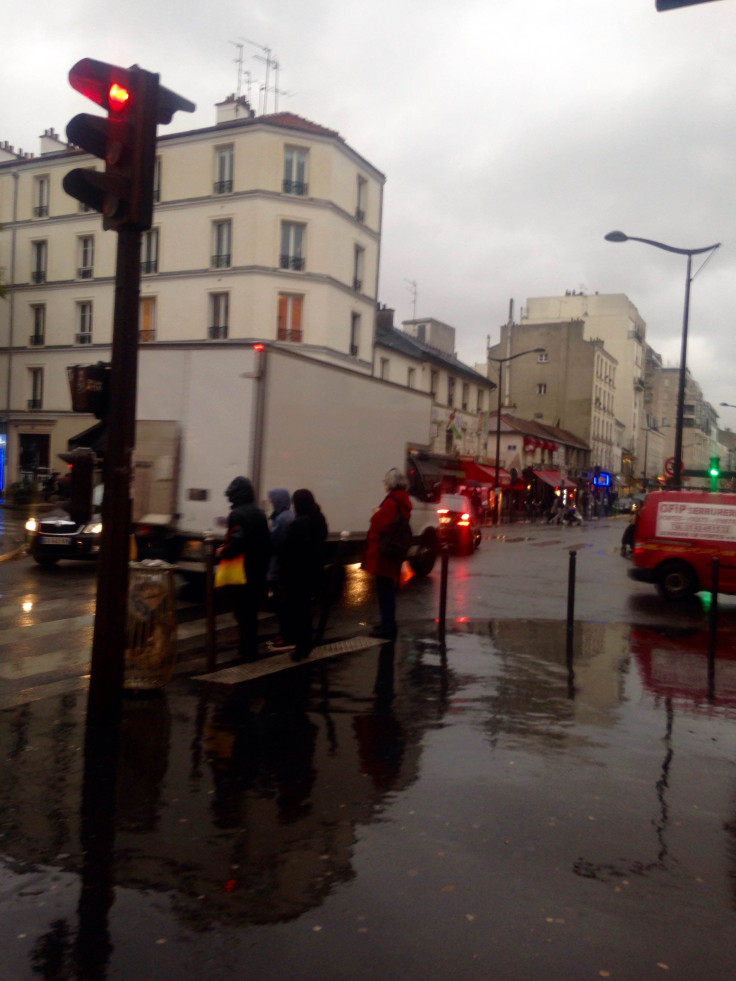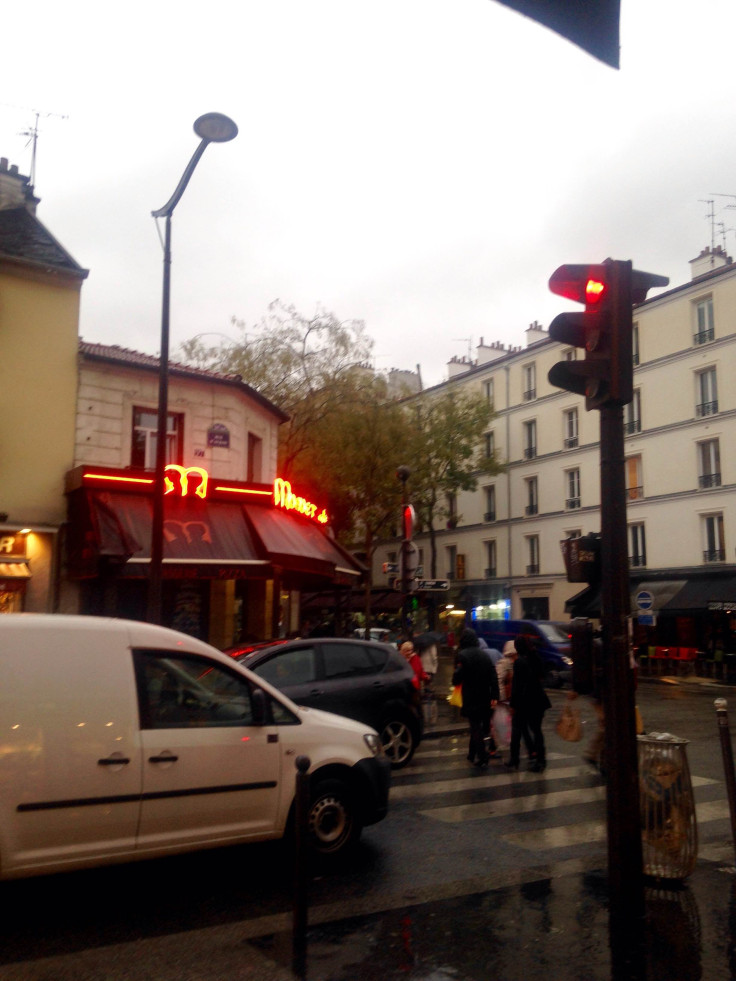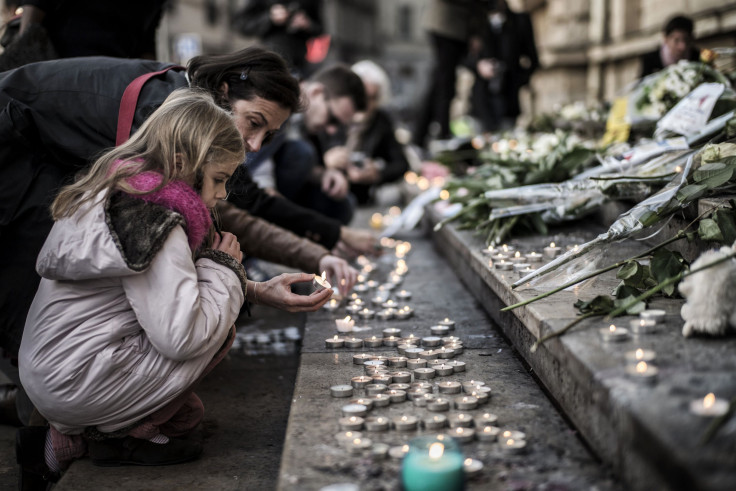After ISIS Terrorism In Paris, How French Parents And Teachers Are Explaining The Attacks To Young Children

PARIS -- When Anne Lacaux heard about Friday's terror attacks in Paris, she made sure her 6-year-old daughter was out of earshot from the television. As she watched Friday's attacks unfold in her home, Lacaux wanted to make sure she shaped how her daughter learned about the event, as it would undoubtedly leave a tragic mark in French history.
“We talked about the enormous amount of death and the nature of the attacks and everything,” she said. “But we absolutely did not allow our kids to watch television about this.”
Lacaux made it a point to tell her daughter the most important details of what happened without getting into the complicated political nuances of the attack. “She’s too young to understand," said Lacaux.
Parents of young children across France struggled to make sense of the attacks, which took the lives of at least 129 people and left several hundred wounded in Paris on Friday. The French government and the mayor of Paris offered guidance to parents and teachers about how to talk about the attacks with children, encouraging open dialogue. Families embraced varied approaches to discussing the attacks, with some like Lacaux preferring to shield young children from the gorier details while others wanted their children to know all of the available information. All parents and teachers who spoke to International Business Times shared the understanding, however, that despite any type of explanation, the loss would be a defining moment in the childhoods of all young Parisians.
Eight terrorists with ties to the extremist group ISIS, also known as the Islamic State, attacked several targets across Paris on Friday, including several bars, restaurants and the Bataclan concert hall. Armed with Kalashnikov assault rifles, grenades and suicide bomber vests, the attackers terrorized the city in the worst attack on French soil since World War II.

As schools reopened across France this week, the massacre became a learning experience for many. Mothers in hijabs and brightly-colored jilbabs, full robes worn by many observant Muslim women, stood beside fathers sporting sneakers, jeans and thick tortoiseshell glasses outside the Pyrenees Elementary School in Paris on Tuesday. Waiting to pick up their children after school, parents pressed huddled near the school door under the drizzle of rain in the 20th arrondissement, a neighborhood only a few miles away from Friday’s terror attacks.
One young student, a 6-year-old girl named Sara, rushed out of the door to greet her mother, a quiet woman wearing a headscarf, who preferred to remain anonymous. Sara’s mother told IBT that she always left the television on and that she kept nothing from Sara about what happened the night of the attacks.
“We talked with the director of the school after our classes,” said Sara, adding, “He told us we were all brothers and sisters.” Sara bounced around in a Mickey Mouse skirt and continued to recount her school day: “We all got to say one thing. I said ‘People shouldn’t kill others because it’s wrong and it’s impolite and horrible,'" she recalled. "We are all Parisians.’”
French President François Hollande decreed that all schools would hold a moment of silence for the victims of Friday’s attacks, as they did in January following the attacks against satirical weekly newspaper Charlie Hebdo, when two extremist brothers gunned down 12 cartoonists over caricatures of the Prophet Mohammed.
Unlike the Charlie Hebdo attacks, however, the French Minister of Education decided that it would be beneficial for students to discuss the attacks with their teachers in addition to the minute of silence. Many students following the Charlie Hebdo attacks were confused, angry and sad, and teachers soon realized that a moment of silence alone would not suffice to deal with the tragedy.
Karen, a school teacher and mother at the Pyrénées Elementary School, said she was glad her students would be given the space to reflect and react in a way they hadn't been able to after the Charlie Hebdo attacks, even if that reflection could lead to difficult conversations.
She described how after the Charlie Hebdo attacks, some students, particularly Muslims who did not agree with much of the content produced by Charlie Hebdo including caricatures of the Prophet Mohammed, were critical of the minute of silence and wanted to talk more about what it means to say "Je suis Charlie."
A student later said "I'm not Charlie; I think the terrorists did the right thing," Karen recalled. "Children have the right to say silly things, to even say offensive things," in the wake of tragedy, she said.

Freedom of expression is important to the grieving process, school officials stressed. The director of a French public preschool said they focused this week on listening to the children more than explaining to them what had happened. "They all had things to say," she said. "They talked about their unhappiness, their stress, sometimes with words and other times with pictures."
The school is located less than two miles from where the assault on the Bataclan concert hall occurred and many of the children described hearing gunshots and explosions. “Children wanted to know whether it could happen again,” said the director, who refused to give her name, saying the government discouraged all public school representatives from speaking to the press.
France's Minister of Education, Najat Vallaud-Belkacem, distributed materials to parents ahead of Monday’s moment of silence and encouraged them to call a special hotline designed to deal with post traumatic stress following the attacks. She urged parents to talk to their children. "Don't hesitate Monday to take the time to talk to your children's teachers, to exchange with them," Vallaud-Belkacem wrote in her letter to parents, adding, "This moment of exchange is essential to allow teachers to approach the subject in the best way for your children."

Bernard Métraux, 61, said he decided to speak to his children frankly after a classmate of one of his daughters lost her grandfather in the attack. During dinner, the family held a minute of silence around the table to remember the dead.
“We talked about everything, the bombs, everything,” he said, describing how he told his children exactly how the suicide bombers carried out their plot and that many young people had been killed.
His daughters, who were both under 10, wanted to understand the tragedy and he welcomed them to ask any questions they wanted. He was often at a loss for responses, however.
“I have the same questions they do," he said. "‘What is happening? Why did they do this?’”
© Copyright IBTimes 2024. All rights reserved.












